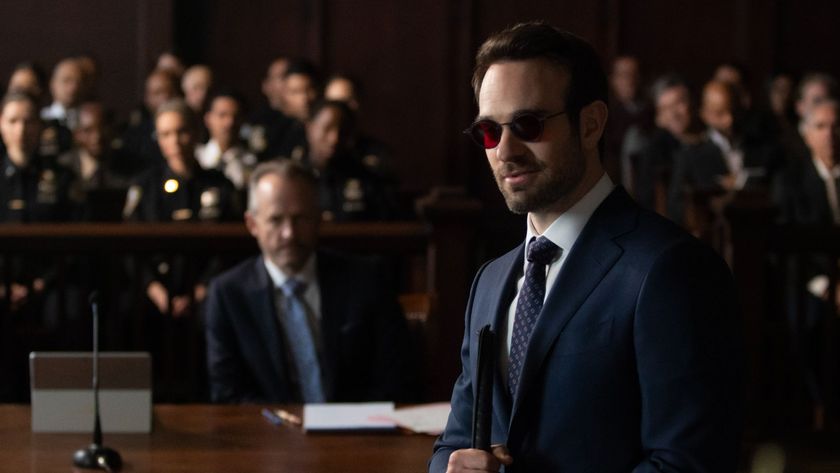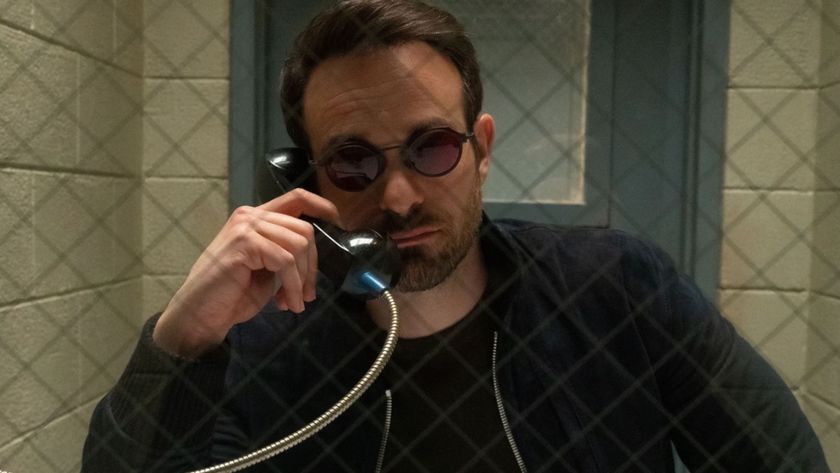
TV is changing. And nowhere is that more evident than with the latest series of Lost. The show appears to have abandoned any pretence at appealing to a mass audience and is now a fans-only zone. If you've never seen Lost before, season five is not a good time to leap on board. It's never been a conventional drama, but now you can only really enjoy the show if you've been following the show since day one. Actually, scratch that. You can only really enjoy the show if you've been taking notes since day one. Which means its core audience are probably the same people rushing onto the Lost Wiki to prove they’ve spotted something before all the other Lostologists do.
Lost has never been a conventional drama. But now it seems to have moved onto a new level, where the main source of entertainment comes not from caring about the such fuddy-duddy, outmoded, old school dramatic stand-bys as characters and plot. No, now that that show is all about time travel, it's turned into some kind of logic puzzle-cum-memory quiz, a weekly dramatised dose of Dr Kawashima's Brain Training. The excitement comes from spotting a situation we’ve experienced before from a different vantage point; or recognising a character from an earlier episode in a different guise; or putting together the clues to work out which time period we’re in.
Oh, and getting a thrill whenever one of the famous "numbers” occurs. When you feel more moved by spotting Ben taking ticket number 342 at the butcher’s shop than you do about Jack's drug abuse, you have to wonder if Lost is simply an entirely new form of "drama”.
Is that necessarily a bad thing? After all, what's better? A show that's loved by a small band of loyal followers? Or a show that's bland enough to appeal to a large number of viewers?
Lost has the luxury of being able to vanish up its own backside (with or without the aid of a donkey wheel) because the end is in sight. There’s only one more season after the current one, and that’s virtually assured thanks to advance sales to TV channels worldwide, even if US ratings collapsed. So, hey, it can be as indulgent as Hell, sod the general audience, and just concentrate on rewarding its loyal fans by throwing them scraps that tie up dangling plot threads from three seasons back.
But does that make it a good show? In a conventional sense, no. And certainly even some hardy viewers are being alienated as the show becomes more revelation-orientated and less character-driven. A mystery is all well and good, but it can be frustrating when all a mystery needs to be solved is for the characters to just say, “Hang on – just tell me what you mean…!” every so often. Even the occasional, “Why?” wouldn’t go amiss.
If, though, a significant core audience is still lapping things up and loving the drip-feed of clues, then what’s wrong with that? As multi-channel TV and TV on demand results in ever-dwindling ratings figures, audiences have a right to be choosy about they watch. So maybe shows that reward the loyal and don’t pander to the lowest common denominator are the way forward?
Sign up to the SFX Newsletter
Get sneak previews, exclusive competitions and details of special events each month!
Possibly. But certain rules of drama still apply. You can only argue so far that Lost is catering for the faithful, before you have to start arguing that any old tosh is worthwhile if there are enough people out there who'll watch it. A small committed audience doesn’t equate to quality any more than a mass audience does.
At the moment Lost is performing a delicate balancing act. There’s still a lot of fun to be had (and I admit, on an intellectual level, I'm still enjoying it), but it's an oddly passionless show now. I find it hard to get Lost in it. There is still enough investment in the characters to make you care, but a lot of that is an historical investment, a hangover from earlier seasons. Tellingly, it‘s difficult to care about characters introduced in the later seasons; their role seems to be squarely plot fodder. When one of the newbies died recently, it came across less as a heartbreaking loss, and more as a set up for a piece of timey-whimey shenanigans to come.
So, should a show worry if it’s not friendly to casual viewers? Clearly not. But it should worry if viewers prepared to commit to watch every week, but not committed enough to do a quick revision course on Wikipedia after each episode, begin to wonder if it’s worth the bother. I’m all for making people watch with their brain in gear, I'd like to be rewarded for that investment with something more than partial answers to years-old questions. I fear I'm suffering from the onset of revelation-weariness.
SFX Magazine is the world's number one sci-fi, fantasy, and horror magazine published by Future PLC. Established in 1995, SFX Magazine prides itself on writing for its fans, welcoming geeks, collectors, and aficionados into its readership for over 25 years. Covering films, TV shows, books, comics, games, merch, and more, SFX Magazine is published every month. If you love it, chances are we do too and you'll find it in SFX.

















